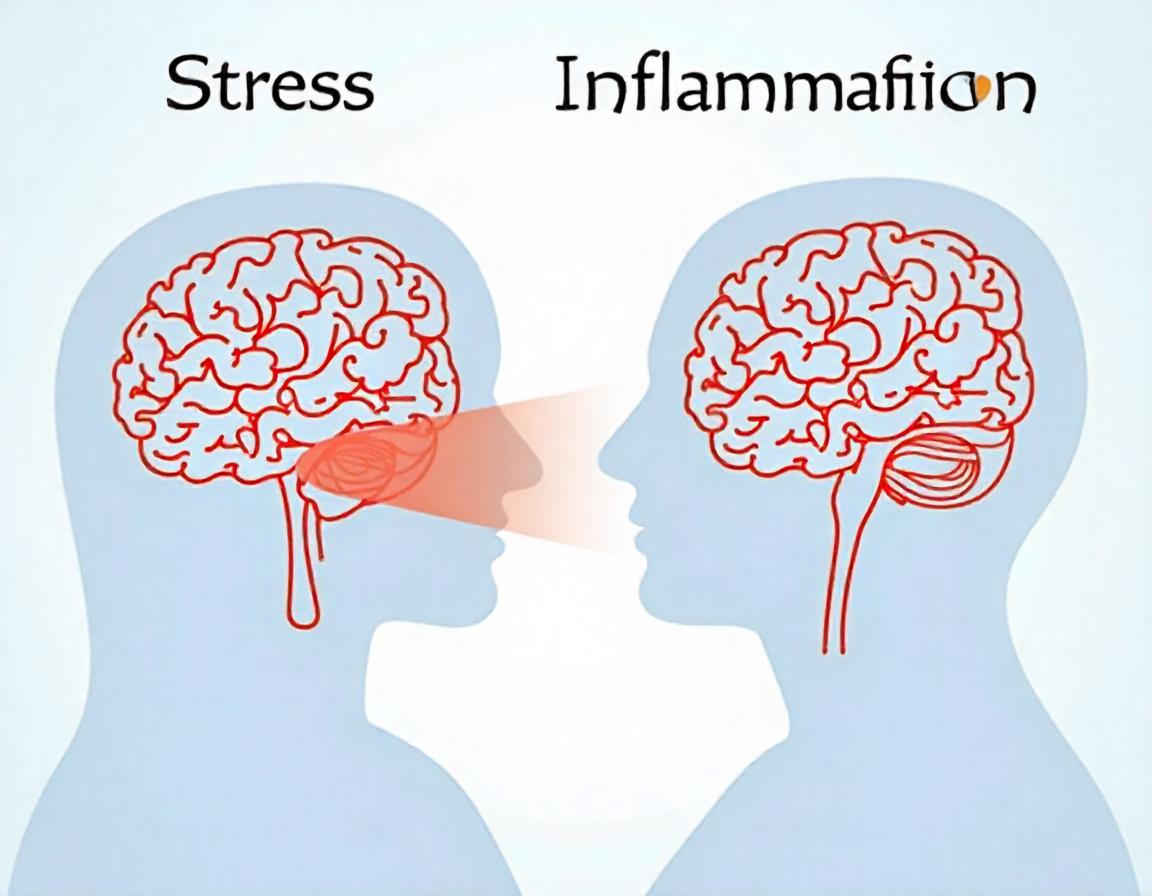Understanding the Stress-Inflammation Connection
Stress is an inevitable part of life, but when it becomes chronic, it can wreak havoc on the body. Inflammation, a natural response of the immune system, is essential for healing injuries and fighting infections. However, when stress persists, it can lead to overactivation of inflammatory pathways, causing long-term damage to tissues and organs.
How Stress Triggers Inflammation
Chronic stress activates the hypothalamic-pituitary-adrenal (HPA) axis, leading to the release of cortisol, the stress hormone. Here’s how this process fuels inflammation:
- Cortisol Dysregulation: While cortisol helps control inflammation, chronic stress can make the body resistant to it, leading to unchecked inflammation.
- Immune System Overactivation: Persistent stress stimulates the production of pro-inflammatory cytokines, proteins that promote inflammation.
- Oxidative Stress: Stress increases the production of free radicals, leading to oxidative stress, which further exacerbates inflammation.
The Impact of Stress-Induced Inflammation on Health
Chronic inflammation, fueled by ongoing stress, can contribute to several health issues:
- Cardiovascular Diseases: Elevated inflammation is linked to hypertension, atherosclerosis, and heart disease.
- Autoimmune Disorders: Stress can exacerbate conditions like rheumatoid arthritis and lupus by heightening the inflammatory response.
- Mental Health Issues: Inflammation is associated with anxiety, depression, and cognitive decline.
- Metabolic Disorders: Chronic inflammation can lead to insulin resistance, contributing to diabetes and obesity.
Signs That Stress is Causing Inflammation
It’s crucial to recognize when stress might be triggering inflammation. Common signs include:
- Persistent fatigue
- Joint or muscle pain without a clear cause
- Digestive issues, like bloating or irritable bowel syndrome
- Mood changes, such as irritability or anxiety
- Recurring infections or slow wound healing
Managing Stress to Reduce Inflammation
The good news is that managing stress can help lower inflammation. Here are some practical strategies:
- Practice Mindfulness and Meditation
- Engage in mindfulness exercises to reduce stress levels.
- Studies show meditation can lower cortisol and inflammation markers.
- Exercise Regularly
- Moderate physical activity helps regulate inflammatory responses.
- Activities like yoga and walking also promote relaxation.
- Eat an Anti-Inflammatory Diet
- Include foods rich in omega-3 fatty acids, antioxidants, and fiber, such as:
- Fatty fish (salmon, mackerel)
- Leafy greens (spinach, kale)
- Berries and nuts
- Avoid processed foods, sugars, and trans fats.
- Sleep Well
- Poor sleep exacerbates stress and inflammation.
- Aim for 7-9 hours of quality sleep nightly.
- Seek Support
- Talking to friends, family, or a therapist can reduce the emotional burden of stress.
The Role of Gut Health in Stress and Inflammation
Emerging research highlights the importance of gut health in managing stress and inflammation. A balanced gut microbiome can help regulate the body’s stress response and reduce inflammation.
- Probiotic-Rich Foods: Yogurt, kefir, and fermented vegetables can enhance gut health.
- Prebiotic Foods: Garlic, onions, and bananas nourish good gut bacteria.
- Avoid Gut Disruptors: Reduce intake of alcohol and high-sugar foods that can harm gut balance.
When to Seek Professional Help
If stress and inflammation persist despite lifestyle changes, it’s essential to consult a healthcare professional. Persistent stress may require interventions such as counseling, stress management programs, or medications.
Conclusion
Understanding how stress and inflammation are linked provides a pathway to better health. By recognizing the signs and adopting stress-reducing strategies, you can break the cycle of chronic stress and inflammation. A balanced lifestyle that includes mindfulness, regular exercise, and a healthy diet can significantly improve your physical and mental well-being.

